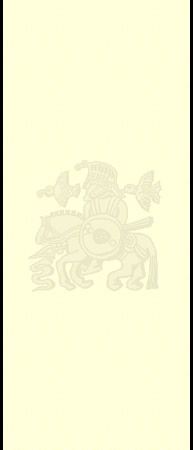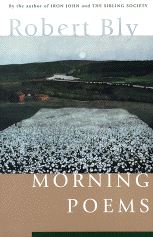



| Web site design and maintenance by Akikaze Media Services. All content of this site, unless otherwise noted, is copyright ©2001 Robert Bly. All Rights Reserved. Any duplication, in any form without the written consent of the copyright holder is prohibited. |
 Interviewer: In 1998 you published a book called Morning Poems. Why did you take that title?
Interviewer: In 1998 you published a book called Morning Poems. Why did you take that title?
Robert Bly: The poems in that book I wrote in bed, in the early morning. I took the plan from Bill Stafford, who, as you know, wrote a poem every morning for about forty years.
Interviewer: Did this morning work produce a different sort of poem for you?
Robert Bly: Well, the mood is relaxed. That's nice. You say to yourself, "Well, this poem isn't going to be any good, but I'll write it anyway." The first detail that arrives is treated as if it were the end of a thread. When one follows that thread, whatever comes along is welcomed into the poem. It could be a three-legged dog or an old stick or a character out of Madame Bovary. Whatever it is, I'll welcome it into the poem. You can always take it out later. One has no idea where the poem is going. That's what I like. You're following a thread. Sometimes the flow goes easily–didn't Frost say, "A poem is like a piece of ice on a hot stove; it moves on its own melting"? It's like that. Stafford liked the Blake lines:
I give you the end of a golden string.
Only wind it into a ball;
It will lead you in at heaven's gate
Built into Jerusalem's wall.
Interviewer: What are the stages of development from the initial impulse to the final poem? Could you give an idea of what that process might be like?
Robert Bly: It's important to say that we're riding on little waves of language here, and the great genius of our language is its constant development of apt everyday phrases.
"It will lead you in" . . .to something. So already one has the suggestion that the thread is going to carry you into memory, and maybe even beyond personal memory into cultural memory, or religious memory. So the stakes are very high in a poem like this; there's very little will involved in it. There is a dancing among all the experiences you've ever had, and a dancing among the gifts you've received from your family, from the wider culture, from your reading. And then the hope is that you can begin to work yourself back into your own life.
Interviewer: In these poems, form seems to be coming in more than it has in your work for many years. Quatrains are appearing.
Robert Bly: Ah well. Maybe there's enough freedom in the associations, so that it's a relief to come back to form. Things move very swiftly in these poems–it's like hands doing a swift sketch–I didn't really plan the quatrains; they happened. One of our jobs these days, anyway, is to escape from free verse.